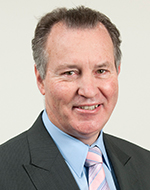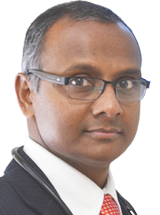Best Endocrinologist in Adelaide

Dr. Tien Lee
Endocrinologist
Prof. Peter Clifton
Endocrinologist
He has been Head of the Clinical Research Unit at CSIRO Health Sciences and Nutrition since 1994, and been theme leader for Obesity and Health since 2004. He is now responsible for all food and health related research in both CSIRO Human Nutrition and Food Science Australia. Prof. Clifton has developed strategies to modify cardiovascular risk, and in recent years broadened the focus to the control of obesity and obesity-related conditions, including management of hyperglycaemia and disordered lipids in diabetic and insulin-resistant subjects, and strategies to modify macronutrient intake in order to optimise weight loss in the obese.

Dr Marcin Stankiewicz
Endocrinologist
highly trained gynaecologist who has specialised in fertility for men and women. He is one of only a handful of specialists in Adelaide with a CREI qualification:Certificate in Reproductive Endocrinology and Infertility. Until recently he worked for the various IVF clinics in Adelaide since 2002. He can offer unbiased advice on the merits of each service.

Dr Tony Roberts
Endocrinologist
his advanced training in Endocrinology at Flinders Medical Centre and St Vincent’s Hospital in Melbourne in 1982. He spent the next three years as a NH&MRC Research Fellow at St Vincent’s School of Medical Research researching the immunology of thyroid disease.

Dr.Narsing Laddipeerla
Endocrinologist
Laddipeerla completed his Endocrinology training from one of the most prestigious medical institutions in India. Dr Laddipeerla is exploring oppurtunities with managing endocrinology patients in private and is most interested in providing assistance with complex clinical problems including diabetes, thyroid disorders, pituitary disorders, osteoporosis and sexual disorders in men. He is a Fellow of Royal Australasian College of Physicians.
What is endocrinology?
Endocrinology is the study of the endocrine glands or internal secretion glands. These include B. the thyroid, parathyroid, adrenal glands, pituitary gland, and pancreas. Together with the glands that produce the sex hormones in men and women and a large number of other hormone-producing cells, e.g. B. in the gastrointestinal tract and in fat tissue, they are responsible for the hormonal regulation of all organ functions in our body. Hormones are vital messenger substances in our organism, which contribute significantly to our well-being.
Not only rare hormone diseases, but also so-called common diseases fall into the field of the endocrinologist: osteoporosis, diabetes, goiter or enlarged thyroid, hormonal changes in old age. Hormonal imbalances play a role in a variety of diseases, such B. rheumatism, in pediatrics (growth disorders) and reproductive medicine (infertility), high blood pressure, bone metabolism, a role. For this reason, the field of endocrinology is a very broad field and the endocrinologist is a specialist in many fields of medicine.
What is an endocrinologist?
An endocrinologist is a specialist in internal medicine. He mainly deals with hormones and is therefore specialized in the prevention, diagnosis, therapy and research of hormonal diseases and functional disorders. Since endocrine hormones affect almost the entire body, the field of the endocrinologist is not so easy to define. Rather, he intervenes in the individual departments and tries to recognize interactions and overall connections. In addition to hormones, the treatment of metabolic diseases and nutritional medicine also fall into the field of the endocrinologist.
What does the endocrinologist do?
Diagnosis & Treatment At the beginning of the diagnosis, there is a detailed anamnesis , i.e. the conversation between doctor and patient in which important information is requested. Questions such as:
What are the complaints? Since when and in what form do they appear? Are there any other complaints? Are medications being taken and if so, which ones? The laboratory examination of blood and urine has a special place in endocrinology , it is one of the first examination methods. They can be used to determine the level of hormones in the body. The information obtained in this way can then be used to identify irregularities. Further examination methods are: Stimulation of a gland : This is used when an underactive gland is suspected. An example would be the ACTH short test for suspected renal cortical insufficiency, which can be carried out for cortisol, for example. Inhibition of a gland : An inhibition, i.e. a delay or inhibition of the course of a chemical reaction by added substances (so-called ‘inhibitors’), is carried out if an overactive gland is suspected. An example would be a dexamethasone inhibition test, which is carried out if Cushing’s syndrome is suspected. Imaging processes : These include ultrasound, scintigraphy, CT or punctures. A distinction is made between morphological and functional representations. Morphological would be, for example, a thyroid sonography (a radiological procedure that uses ultrasound waves to make the morphology of internal organs and structures visible) to show a reduction in the size of the organ. On the other hand, a thyroid scintigraphy (a nuclear medical examination method) would be functional if thyroid autonomy is suspected (i.e. parts of the thyroid gland become independent, which limits its regular functions).
Categories
- Allergist (5)
- Anesthesiology (2)
- Cardiologist (288)
- Cosmetic Surgeon (79)
- Dentist (261)
- Dermatologist (48)
- Dermatology (150)
- Endocrinologist (22)
- ENT Specialist (239)
- Family Physicians (1)
- Gastroenterology (121)
- General Practitioner (226)
- General surgeon (37)
- Hepatologist (2)
- Immunologist (4)
- Medical Contributors (259)
- Medical Expenses (2)
- Nephrologist (46)
- Neurosurgeon (91)
- Obstetrician and Gynecologist (18)
- Oncologist (99)
- Ophthalmologist (30)
- Orthopaedic surgeon (87)
- Osteopath (64)
- Otolaryngologist (6)
- Paediatric surgeon (7)
- Paediatrician (5)
- Pathologist (64)
- Plastic Surgeon (285)
- Podiatrist (295)
- Psychiatrist (23)
- Radiologist (17)
- Rheumatologist (7)
- Uncategorized (19)
- Urologist (102)
- Vascular surgeon (6)





